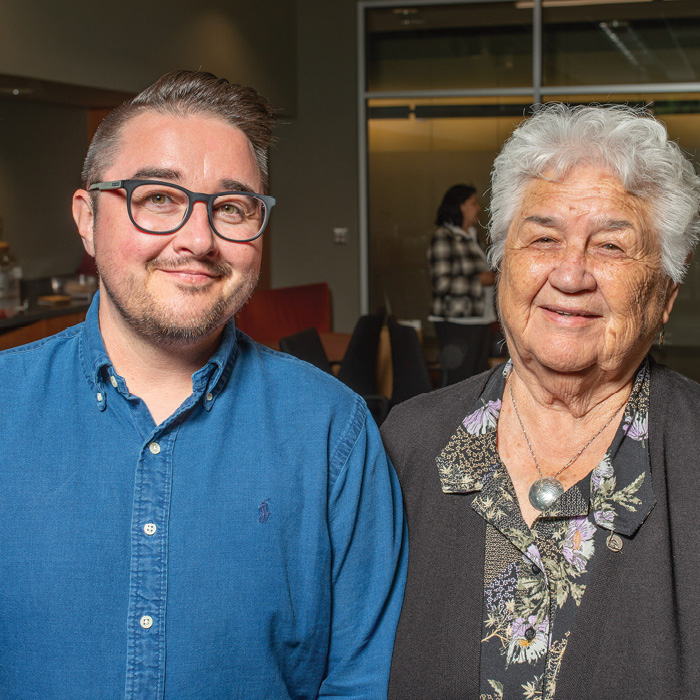
aʔǰɛmaθot
(Davis McKenzie, Tla’amin, Scottish, and Swedish, with his Grandmother Elsie Paul)
After living away from the qathet region for many years and having just returned home to the territory, National Indigenous People’s Day takes on new meaning.
It’s a powerful joy to be visiting places that my ancestors walked for thousands and thousands of years.
Coming home is also stirring up things I’d rather forget. My class was the last to attend the old Brooks school in 1993. School District 47’s version of history, combined with the conversations around the dinner tables of many of my non-Indigenous classmates, told me that I should not be proud to be Indigenous, that our people were “lesser than” and that we should feel grateful for what has been gifted to us through colonialism.
As an adult I understand that this version of history was created to help settlers to feel okay about the theft of land and oppression of our spirit, to rationalize these acts. The fact that this narrative endures and is so boldly and publicly shared in this town, makes National Indigenous People’s Day a solemn occasion for me this year.
My hope is that our neighbours will mark June 21 by taking an active and curious stance about what they think they know about Indigenous people and how they know it.
A good starting place to gain new perspectives on the history of this place can be found in qaʔaχstaləs (Elsie Paul’s) book and Website ‘As I Remember it’: publications.ravenspacepublishing.org/as-i-remember-it/index
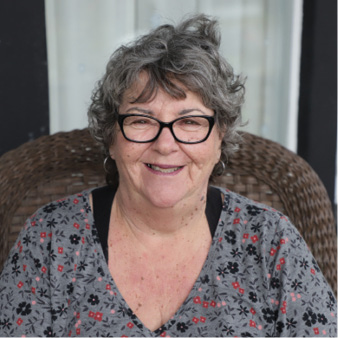
LaDean Paquette
(Me̓tis and Indigenous)
During the past year, I have been doing research on my family tree.
I have discovered that my family is Métis, from my father, grandmother, back to my great great great grandparents. My children, grandchildren and I are now members of the Métis Nation Powell River and have been learning more about our Métis history and culture.
I haven’t really celebrated National Indigenous People’s Day in the past, other than what had been done in the various schools when I was working as a school secretary. I remember when I worked at James Thomson, Gail Blaney would make fish-egg soup and bannock for the students and staff.
I am really looking forward to learning more about the Métis, Cree and other Indigenous people.
I’m not sure how I’d like to see the day celebrated, being it’s all brand new to me and I’m still learning.
I’m looking forward to my first celebration as a member of the Métis Nation Powell River.
I think National Indigenous People’s Day is meant to recognize all Indigenous peoples so we can all, Indigenous and Non-Indigenous, learn more about the different cultures.
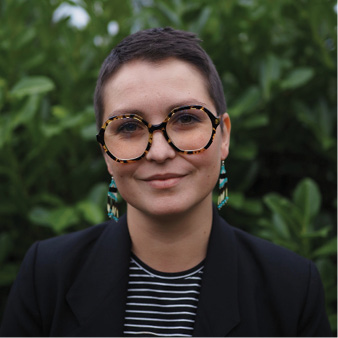
Tabatha Berggren
(Me̓tis)
National Indigenous People’s Day is a small and important step in Reconciliation to have Indigenous peoples acknowledged in a national way.
The day should be celebrated by the community to seek out and hold space for Indigenous stories.
NIPD is the beginning of an acknowledgement for the unparalleled value that Indigenous peoples bring to society in this country named Canada.
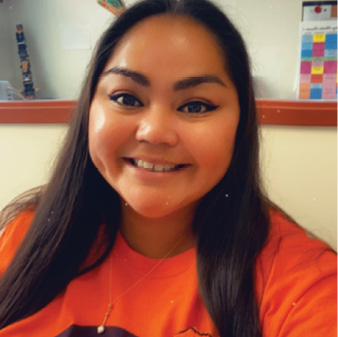
Karina Peters
(ɬaʔamɩn and Indigenous)
A few years ago, the Nation hosted its own celebration in the community. We shared our language, songs, dances, art, and stories. I would love to see this happen again within our community or at one of our former village sites to raise awareness where our people settled.
NIPD is important because Canada Day has been celebrated since 1868. Indigenous people have been here since time immemorial and have only recently had a day to celebrate who they are. It is important for Indigenous people to celebrate the languages of the land, cultural practices and traditions that shape their identity.
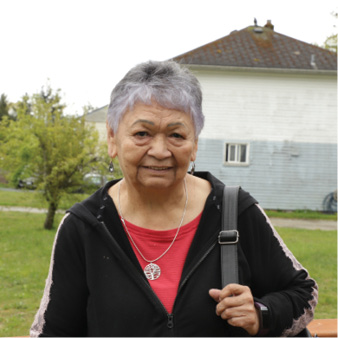
Les. Pet
(Doreen Point, First Nations)
It is good that the Canadian government is recognizing us as people.
We come from such a rich, vibrant culture and we really value that and our traditions.
I almost didn’t feel that way because of Residential Schools. The schools took our identities, our culture, and our spirit. They took everything from us. I was moulded into somebody I wasn’t. It’s amazing we survived, Residential Schools were a place of horror.
I think National Indigenous People’s Day bringing together folks from different cultures in ways we never knew how to, is really incredible. I would love to see it celebrated worldwide, but you have to understand what you are celebrating.
I have always been a people person, so having everyone come together for a big celebration ceremony where we share our traditional foods, our culture, and our art would be great. Our people have so much love to give, we can do this through sharing our culture with the world.
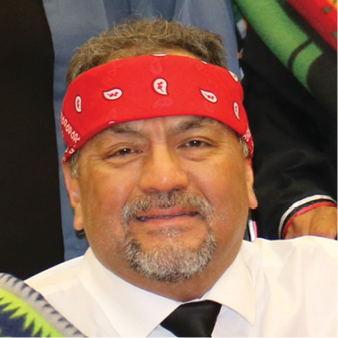
Qwastånayå
(L. Maynard Harry, First Nations)
For me, the fact that systemic racism exists in this country takes away from what a NIPD should be about.
NIPD is a Canadian symptom of greed, dishonesty and corruption. I would prefer no national holiday in exchange for an answered ‘land question,’ which is 155 years and counting. I would prefer for Canada to stop stealing land, oil, gas, and other valuable natural resources. I would like Canada to stop praising itself on the world stage when Indian Reserves and an Indian Act (apartheid instruments) continue to exist for far too many First Nations.
White privilege in Canada is strong because its citizens have no understanding of the impacts Indian Reserves or the Indian Act have had in First Nation communities. That being said, I was mildly surprised by the amount of knowledge and support at the possible name change open house May 11.
If reconciliation is possible in Canada, it will come from a younger, smarter and more open-minded generation. I raise my hands to those who had the courage to stand up and be heard. That is leadership.
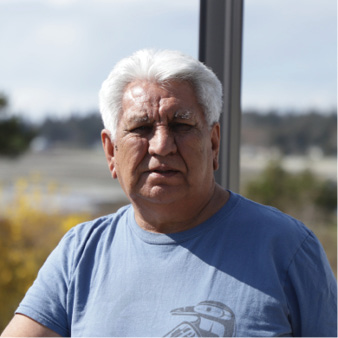
Yaxhum
(John Louie, Elder)
Different nationalities celebrate through their flags and cultural activities. We were put under the Indian Act and weren’t allowed to be who we are.
Now, our songs, drums, and sacred ceremonies are all coming back and more people are involved in our culture. I am proud of who I am today.
People are still under the Indian Act mentality. Until the citizens of Canada and North America realize our history, change can’t happen. I think this holiday is a way for the government to make themselves feel good.
NIPD could be celebrated by more gatherings of folks talking about the history of our land and our culture. I believe this could help change the future.

Grace Adams
(Tla’amin citizen)
It’s exciting to see on TV and social media the celebrations happening across the country from so many Indigenous performers who showcase their talent.
It’s a day of reflection to honour and remember those who have gone before us and who endured and did the absolute best they could in challenging times.
It speaks to the endurance of the human spirit and the power of love for family and community to overcome such devastation. It’s very humbling to witness so much pride and joy as we all celebrate National Indigenous People’s Day.
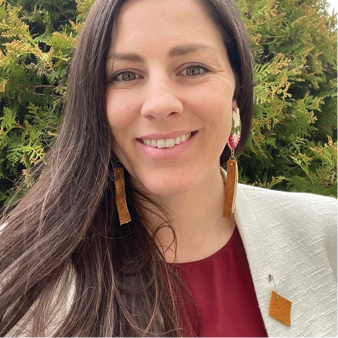
čɩgɛtoǰɛ
(Jessica Johnson, Me̓tis and raising two Tla’amin daughters)
Indigenous People’s Day, to me, is a day to celebrate our unique identities and the knowledge, contributions, and perspectives of our people. As I work in education, I often celebrate by supporting community, district, or school-based activities to assist others in celebrating NIPD.
In other years, I have taught the Red River Jig to classes of students, hosted storytellers, made fry-bread for staff and students at various schools… just to name a few things.
National Indigenous People’s Day is a time to celebrate, honour, and recognize the contribution, richness, resilience, and diversity of Indigenous peoples.
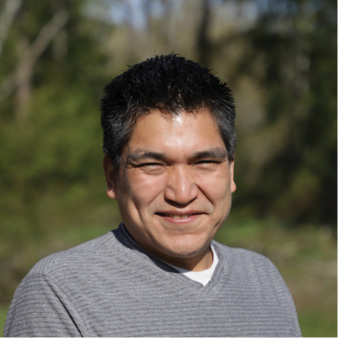
Randolph Timothy Jr.
(Indigenous)
NIPD, to me, is celebrating being Indigenous. There are still some things to work on, but it’s a different day for the younger generation to grow up in, because it is that much better.
I can’t wait to see NIPD as a holiday, like Canada Day. I have previously worked a camp job in Fort McKay, just north of Fort McMurray, and on June 21 there were drummers and dancers from that area dancing and singing. This performance made me feel connected.
The importance of this holiday shows the growth of Canada, that Indigenous people are recognized and celebrated. |






